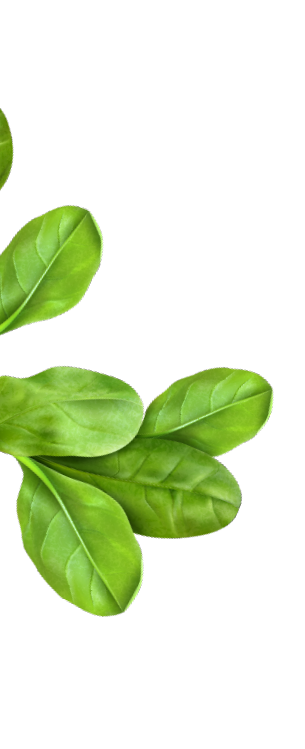If you are an expert chef, love to cook or just getting your feet wet in the kitchen, there are your handy go-to herbs to spice up any dish and give it that little extra something. However, we often focus solely on taste and we tend to forget about the nutritional value that goes into our meals. Some of us just head to straight to the salt and pepper, but those spices are better left to the table setting. Leave it to the people enjoying your dish to add more or less salt or pepper to the meal. The herbs I’m referring to are the fresh and nutritional herbs that you can grab to be used as a main ingredient or as a garnish in your dish.
Nutritional Herbs:
Cilantro - The anti-diabetic plant
This herb offers a fresh, citrusy flavor to foods. Nutritionally, it is an excellent source of dietary fiber, calcium, iron, potassium and magnesium. Cilantro provides vitamins A, C, E and K. These vitamins and nutrients help support healthy blood flow and improve the condition of hair, skin and bones. Use in your next pesto or chimichurri.
Thyme - The anti-stress plant
This herbs offers a strong, earthy flavor to foods. It is an excellent source of iron, potassium, vitamins C, A and B6. These vitamins are essential to protecting the immune system, improving blood circulation and aiding in healthy heart function. Additionally, thyme is known for reducing stress. Regular use of the herb can actually improve your mood! Use in your next soup or stew.
Parsley - The stomach relief plant
The herb has a refreshing and mildly bitter taste. Fresh parsley is packed with vitamins C, A, K, E, B6, potassium, calcium, magnesium, phosphorus, thiamin, zinc, riboflavin, folate, iron and niacin. The herb can be used as a detox to help improve kidney function. However, parsley’s primary value provides relief from gastrointestinal issues. Some of these issues include nausea, stomach cramping and bloating. It does wonders for your digestive system. Use in your next salad or as a finishing touch on your fish or meat dish.
Basil - The healthy heart plant
This herb adds a fresh and invigorating flavor to dishes. It is rich in vitamins A, C, K, manganese, magnesium, copper, calcium, iron, folate and omega-3 fatty acids. The herb promotes cardiovascular health by prompting muscles and blood vessels to relax. Basil improves circulation, lessens the risk of heart muscle or blood vessel spasms and reduces the possibility of irregular heart beats. Use in your next pasta red sauce.
To gain the most nutritional value from these herbs would be to pick them fresh. This is why it is useful to have them handy such as grown in a herb garden or grown in indoor herb pots. If you’re not ready to use them in a meal, they are safe to eat right off the stem for medicinal uses. Your nutritional herbs will always be readily available to you to flavor your next meal, to help cure an ailment or to improve your overall health.
Featured Product:
|
Garden Republic Indoor Herb Garden Starter Kit
|



